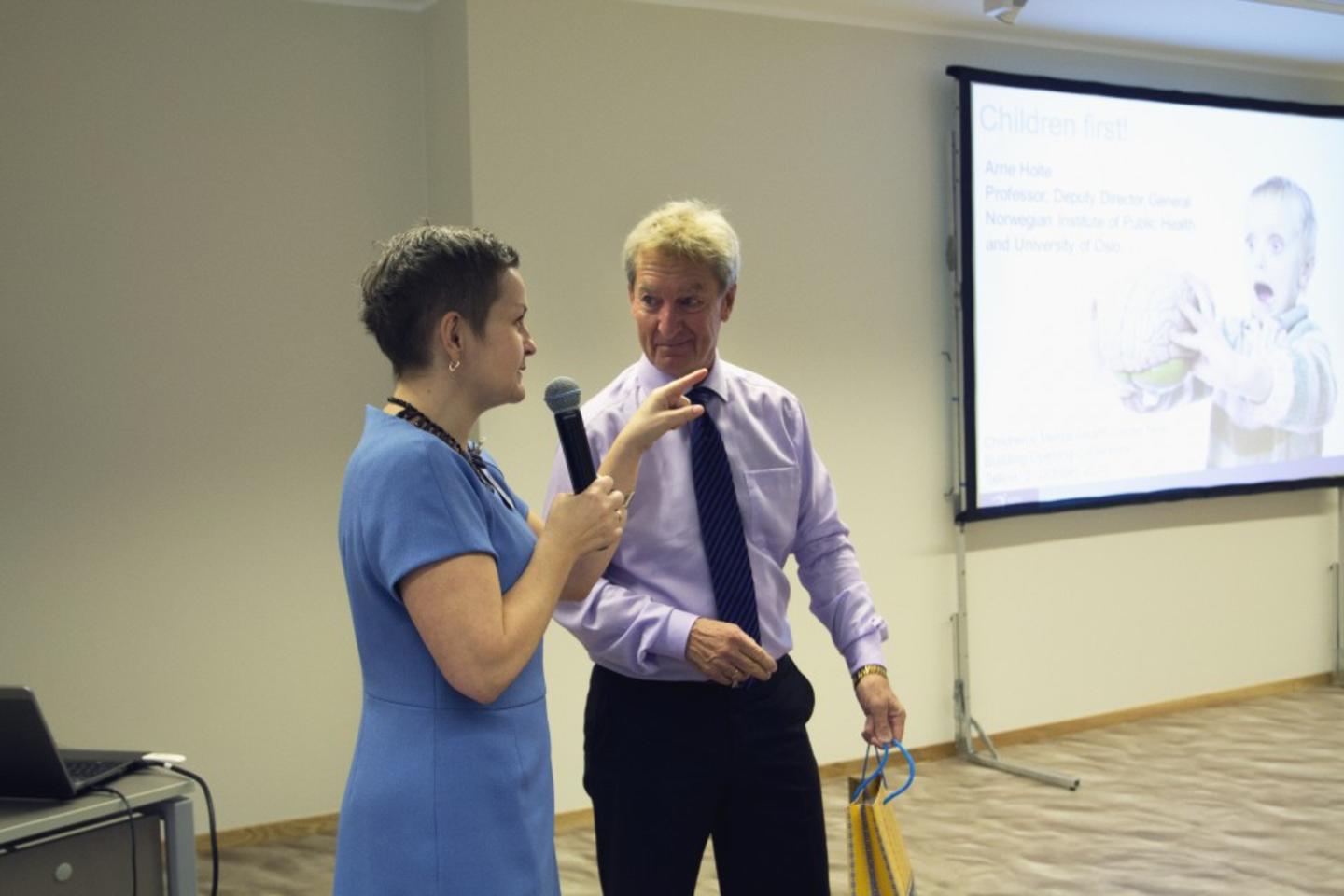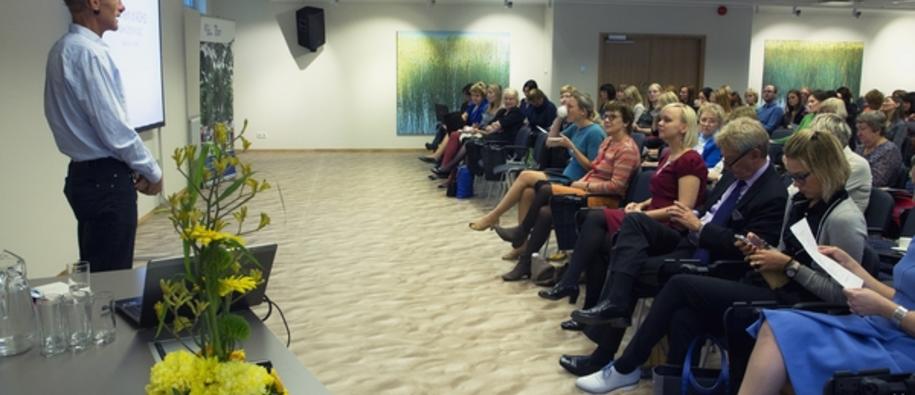As society develops, new problems come into focus and as parents, there is no topic more important than the health of children. This message was underlined by Estonian Prime Minister Taavi Roivas during the recent opening ceremony of the new Tallinn Children’s Mental Health Centre.
In Estonia, more and more children and young people are suffering from mental health problems. Every fifth child is at risk of suffering from mental health issues and, despite falling over the past years, suicide rates – which are often used as an indicator for overall mental health – are still above the EU average.
However, the health care system has not been able to fully respond to the increasing need. The number of regional hospitals offering stationary psychiatric services for children falls short according to recommended international standards. The need for improving these services has been great, making the new centre, supported by Norway through the ‘Public Health Initiatives’ programme, a long-anticipated and welcome addition to Estonian health care system:
“The centre is an important step in improving children's mental health services. It makes the services more accessible for the families and enables us to train a network of integrated service provision across Estonia,” explains Kristiina Kongo, Project Assistant at the centre.
Services
The centre provides services for children and youth struggling with depression, anxiety, eating disorders, alcohol and narcotics through a contemporary and integrated approach. The children staying at the centre have access to classrooms so they can continue their education during their treatments, as well as a gym so they can stay physically active. Comprehensive counselling services for the children as well as their parents and other individuals involved in their lives form the cornerstone of the centre’s programme:
“We offer the possibility to both consult and train the children’s parents. Different kinds of counselling groups are likewise available for children, parents and teachers,” says Kongo.
Training
The centre forms a part of wider efforts undertaken through the Estonian ‘Public Health Initiatives’ programme to improve the capacity of Estonia’s healthcare system when it comes to mental disorders among children. The activities at the centre are therefore not only limited to direct care of patients. The centre also serves as a training facility – both for professionals in the field of mental health services, as well as for people working and interacting with children and youth in other sectors. A network of regional mental health centres in Estonia is likewise being developed through the centre. Through the network, professionals in the field gain a better overview of the mental health situation in the country, and have better access to innovative solutions and knowledge sharing.
Sharing experience and expertise
The development of the centre’s programme has involved extensive experience sharing between Estonian and Norwegian mental health professionals:
“We have had a good cooperation with our Norwegian partners from the Oslo University Hospital and the Norwegian Institute of Public Health, and we have gone on several study visits to Oslo, Trondheim and Drammen,” explains Kongo.
“Our last meeting was now in early October where our colleagues from the Oslo University Hospital visited the centre and carried out a course about diagnostic interviews (Kiddie-SADS) for our specialists,” says Kongo who notes that the ability to share experiences across the two countries has been instrumental for the project:
“Exchanging experiences with our Norwegian colleagues has been very important part in our developmental work. This we have done in several areas, for example in how to diagnose and treat eating disorders, how to measure patients’ satisfaction with therapy, and how to use the Arenaflexible method in outreach team work.”
Read more about the Estonian ‘Public Health Initiatives’ programme

